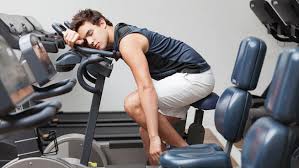
Training for a marathon, playing basketball in an adult league, or college football. Each takes regular stretching and exercise to stay nimble and healthy during the season. And when we take care of our whole self, our whole body is rewarded. Healthy sleep leads to better cognitive and emotional behavior along with physical care for our hearts and mind.
But many athletes and people training for a sports event do not take their sleep quality seriously. Quality is defined as the excellence of something or a distinctive attribute. Without a complete, quality-filled seven or eight hours, the sleep is, unfortunately, all for nothing.
Quality sleep is the difference between your FitBit showing spikes in restlessness or your spouse poking and prodding your side when you keep tossing and turning. And although we have all experienced a night or two with quality-lacking sleep, the majority of your 7 nights of rest each week should be restful and quality-rich, especially for athletes.
Rest, Recovery, Sleep
Training not only helps reduce your risk of cardiovascular disease, diabetes, and other illnesses, but it creates a routine toward a healthy lifestyle. But for many athletes, either in school or training for a marathon, rest, recovery, and sleep takes a backseat.
Recovery includes taking care of sore muscles or any ailments. Taking a break between training will bring an opportunity to cure inflammation or soreness.
Sleep benefits for athletes identified by the Sleep Foundation include:
- “Allowing your heart to rest and cells and tissue to repair. This can help your body recover after physical exertion. Also, as you progress through the stages of sleep, the changes in your heart rate and breathing throughout the night promote cardiovascular health.
- Preventing illness or helping you recover from illness. During sleep, your body produces cytokines, which are hormones that help the immune system fight off infections.”
Exhaustion also harms the mind. When we are not in the right frame of mind due to a lack of quality sleep, our minds will not perform during a run, game, or workout. The plus for athletes who regularly exercise is better quality sleep because their bodies are healthy. However, if you decide to play a late game of basketball or go to the gym later than normal, an hour or two between exercise and sleep is best for quality rest.
“Sleep is also essential for cognitive processing. Loss of sleep is associated with a decline in cognitive function. This can have adverse effects on athletes whose sports require a high level of cognitive function, such as decision making and adapting to new situations.”
Two small changes in your bedroom can also help any athlete on the road to better sleep.
Bedroom Oasis
For a place where you spend at least one-third of your day, it is important to be surrounded by a relaxing environment. If your room is your favorite shade of hot pink, think again. Calming blues and grays is step one to set the scene. By repainting the walls and scaling back the loud color pallette, your mind prepares for a restful night’s sleep.
To create a spa-like setting for the bedroom, soft music can help lower your blood pressure and relax the body. White noise can be a distracting factor for some sleeping disorders where a fan or sound machine can help balance the noise.
Where you put your head at night is equally important for relaxing. So let’s talk pillows. Down, memory foam, feather, microbead, buckwheat; a few choices are on the market. Each are designed for one purpose: sleep. But how do you choose? Sleep.org is one resource that asks some simple questions as you pick.
Mattresses? Don’t get me started. Latex, memory foam, firm, soft, pillow-top, cooling, elevated. This is one of the most important decisions (besides picking the perfect bedding and decorative pillows) for better sleep. Try out several brands before purchasing. Some even have a trial period!
The Right Temp
The ideal temperature for sleeping is in the 60s. When entering the rapid eye movement cycle, your body loses its ability to sweat causing the body to align with the room temperature. When too warm or hot, your body wakes you up and it is hard to fall back asleep.
Equally hard is creating a colder temperature in a room when you do not have an air conditioning unit. Programmable thermostats can alleviate the costs of a cooler home or a cooler room while sleeping so it does not economically drain you. And let’s be honest. Sleeping naked is the last thing anyone wants to do in the winter just to get a few more winks.
Some ideas to help stop the heat are proper curtains or blinds with direct sunlight. Blackout curtains not only create a serene sleeping environment but helps stop the blazing sun for locations in extreme heat or in direct sunlight all day.
If all else fails, look at a cooling mattress, sheets or pillow to bring cooler temperatures to your room.
For a comprehensive analysis, you will need to schedule a sleep study with your local sleep clinic, such as Alaska Sleep Clinic. Our experts can provide a fully comprehensive evaluation of your sleep troubles and prescribe the best treatment for your dilemmas. If you live in the Alaska area, then be sure to give our experts a call for a free evaluation.







